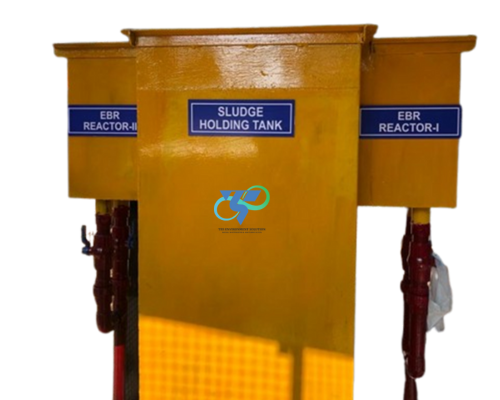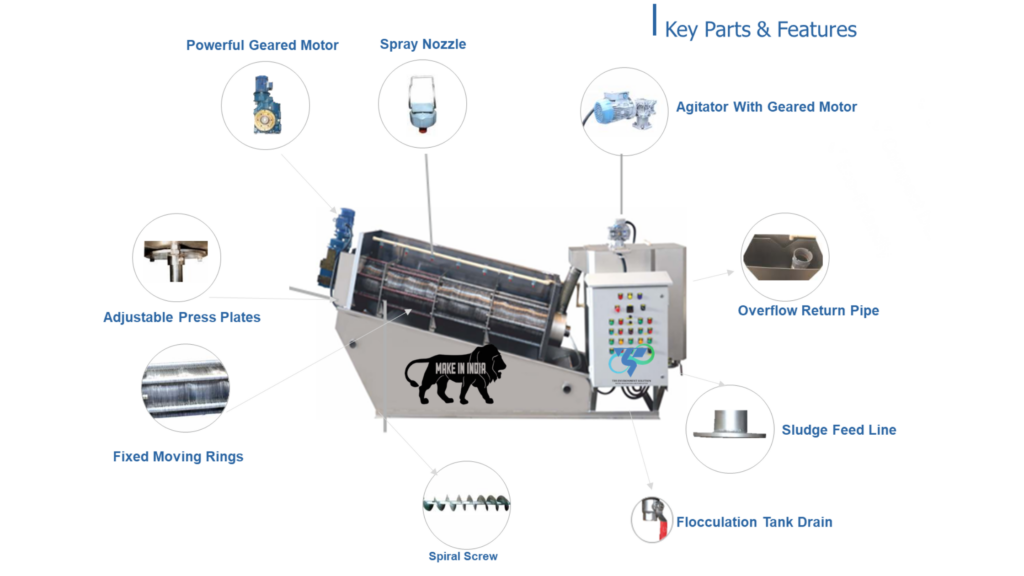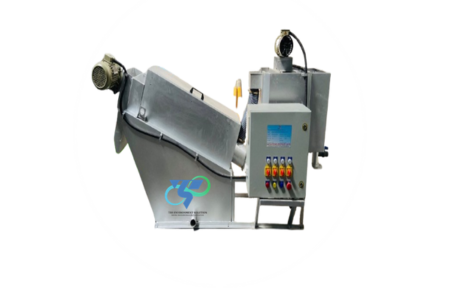Screw Press
Sludge Dewatering Machine (Screw Press) – Overview & Benefits
A TBS sludge dewatering machine (screw press) is an advanced filtration system used to separate water from sludge in wastewater treatment plants. It operates using a slow-rotating screw shaft inside a cylindrical screen, gradually squeezing out moisture while transporting the sludge forward.
Benefits:
✅ High Efficiency – Reduces sludge volume significantly, minimizing disposal costs.
✅ Continuous Operation – Provides steady dewatering without frequent interruptions.
✅ Low Energy Consumption – Consumes less power compared to other dewatering methods like centrifuges.
✅ Minimal Maintenance – Simple structure with fewer wear-and-tear components.
✅ Eco-Friendly – Reduces waste disposal and environmental impact.
✅ Odor & Noise Reduction – Operates quietly and helps control odor during sludge processing.


Working Process of Sludge Dewatering Screw Press
A sludge dewatering screw press operates using a continuous, slow-rotating screw mechanism to gradually remove water from sludge, reducing its volume for easier disposal or further processing.
Step-by-Step Working Process:
1️⃣ Sludge Feeding
- The sludge is pumped into the screw press from a sludge storage tank.
- A flocculant (polymer) is often added to help bind fine particles into larger flocs, improving water separation.
2️⃣ Thickening Zone
- The initial section of the screw press allows free water to drain through a perforated drum or screen.
- Gravity aids in the separation process, reducing the sludge’s initial moisture content.
3️⃣ Dewatering Zone
- The rotating screw gradually moves the sludge forward while applying increasing pressure.
- The gaps between the screw flights and screen get narrower, squeezing out more water.


4️⃣ Filtrate Discharge
- The separated water (filtrate) flows out through drainage ports for further treatment.
5️⃣ Sludge Cake Discharge
- The dewatered sludge, now in a semi-solid form (sludge cake), is pushed out from the end of the press.
- It can be collected for disposal, composting, or incineration.

SPECIALIZED IN:-
- Raw Water Treatment
- Glass Water Bottling Machine
- Wastewater Treatment (STP & ETP)
- Organic Waste Compost Machine
- Air Handling Unit (AHU & HVAC)
- Factory Hygiene Shoe Cleaning Machine

